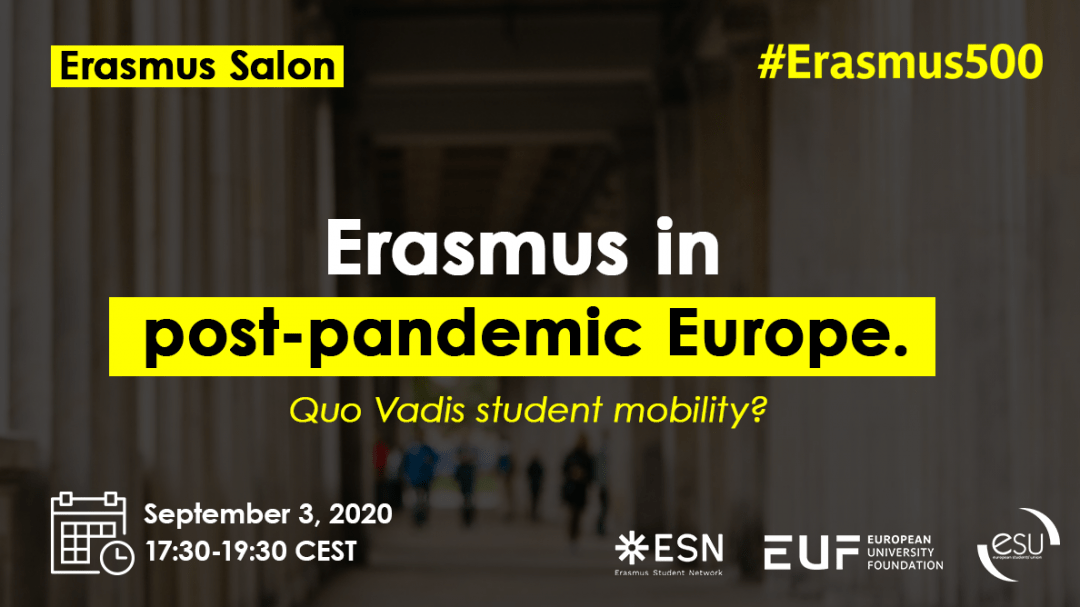Last Thursday, September 3rd 2020, we organised an online debate with European Parliament members and representatives from the French and Spanish Rector’s Council and the Italian National Union of Students to talk about the future of Erasmus+, one of the flagship programmes of the European Union.
The response of the EU to promoting student mobility post-pandemic is a challenge that builds and further highlights the need to enhance the participation of students from more diverse backgrounds. This is a key political issue for which proposals like Erasmus 500 provide a key blueprint for. The importance of ensuring that the political process takes such proposals into consideration is thus of particular importance, as is the fact that a greater articulation and coherency of the Erasmus mobility grants can help bring about a stronger sense of belonging to a Union of shared values, rights and responsibilities.
Participants also discussed that while there are still uncertainties surrounding the 2021-2027 MFF, the work of removing obstacles to mobility remains as important as before, if not more. The role of the newly established European University Alliances was another discussion topic as well as the importance of reducing the carbon footprint of the programme and making Erasmus greener.
The European University Foundation, the European Students’ Union and the Erasmus Student Network would like to thank once again the speakers for this sparkling debate and their support to the non-partisan #Erasmus500 initiative:
- MEP Vladimír Bilčík, Slovakia, European People’s Party (EPP)
- MEP Marcos Ros Sempere, Spain, Socialists & Democrats (SP)
- Carle Bonafous-Murat, Senior Liaison Officer, French Rectors’ Conference (CPU)
- Matteo Vespa, International Officer, Unione degli Universitari (UdU)
- Sebastián Bruque Cámara, Executive Secretary for the Internationalisation and Cooperation Sectoral Commission, CRUE

